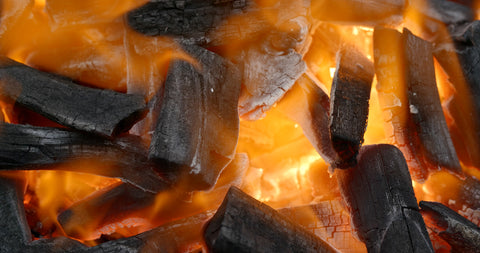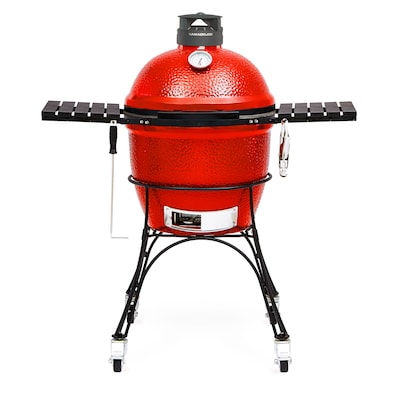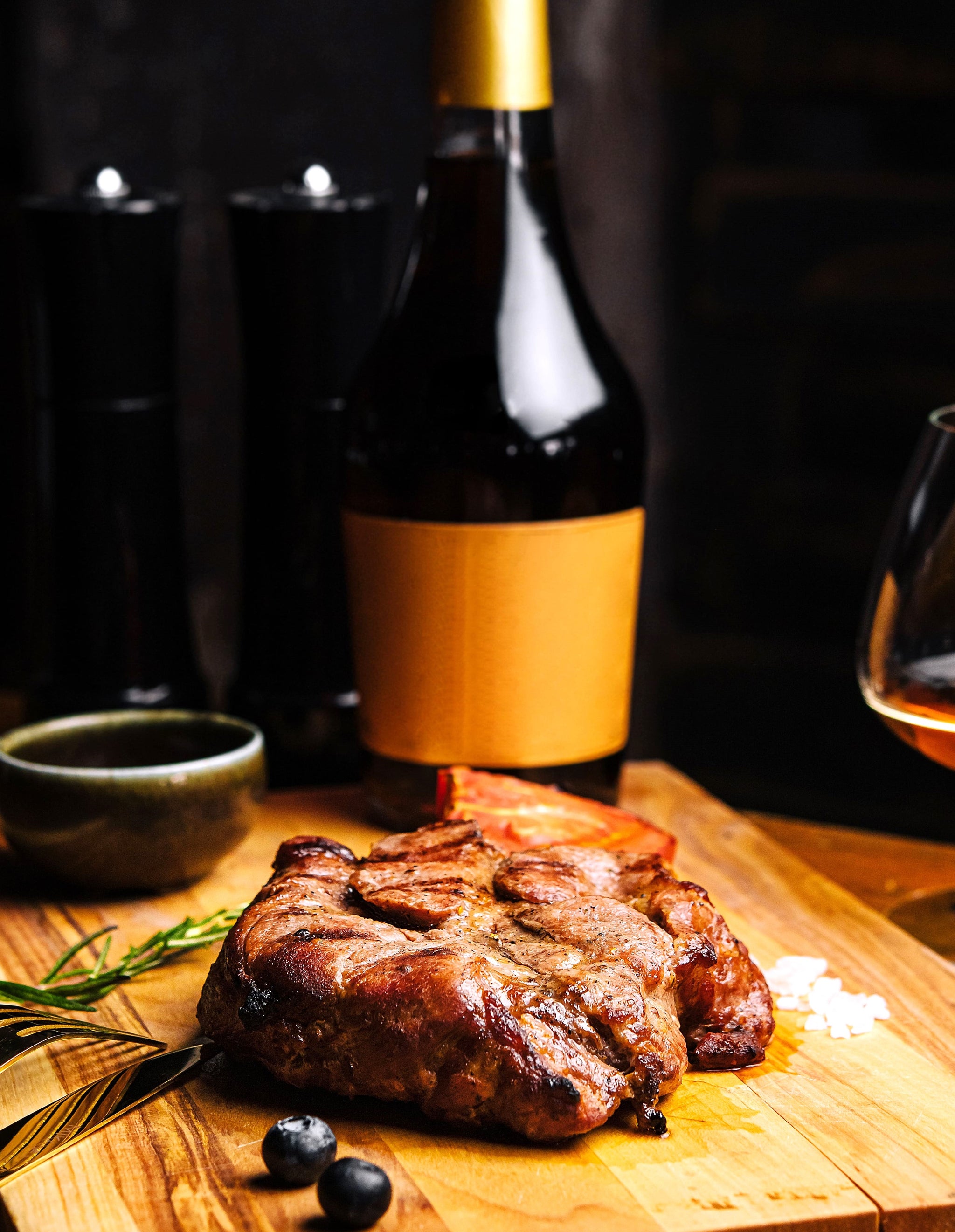
Introduction
Why Charcoal Is A Popular Choice For Grilling
Charcoal has been a popular choice for grilling enthusiasts for various reasons. It provides a unique smoky flavor to the food, enhances the grilling experience, and creates that classic grill mark on the meat. Charcoal is known for creating high heat, making it ideal for searing and achieving that perfect char on steaks and burgers.
Importance Of Understanding Charcoal Lifespan
Understanding how long charcoal lasts is crucial for maximizing grilling time and ensuring a successful cooking process. Knowing the burn rate of charcoal enables you to plan your grilling session accordingly and avoid running out of fuel in the middle of cooking. It also allows you to have better control over the temperature while grilling, resulting in evenly cooked food.
Methods To Maximize The Lifespan Of Charcoal
To extend the lifespan of charcoal and make the most out of your grilling experience, consider the following tips:
- Use the right amount of charcoal: It’s essential to use the appropriate amount of charcoal for your grilling needs. Adding too much charcoal may lead to excessive heat and a faster burn rate. On the other hand, using too little charcoal might result in insufficient heat for cooking. Find the right balance to achieve optimal results.
- Use a chimney starter: A chimney starter helps ignite the charcoal quickly and evenly. This method is more efficient than using lighter fluid, which can leave a residual taste on the food. Start the charcoal well in advance, allowing it to reach the desired temperature gradually.
- Control the airflow: Managing the airflow inside the grill can control the burn rate of charcoal. Adjust the vents to regulate the oxygen supply, which determines the intensity of the fire. Opening the vents allows for increased airflow and more heat, while closing them reduces the burn rate.
- Cover the grill: Using a grill cover when not in use helps preserve the charcoal and protect it from moisture and debris. Keeping the charcoal dry ensures its longevity.
| Advantages | Disadvantages | |
|---|---|---|
| Charcoal | – Provides a unique smoky flavor- Creates high heat for searing- Classic grill marks | – Requires time to ignite- Requires cleanup of ashes |
| Gas Grills | – Convenient and quick ignition- Easier temperature control- Easy cleanup | – Lack of smoky flavor- Not as hot as charcoal |
Factors Affecting Charcoal Lifespan
Type Of Charcoal (lump Vs. Briquettes)
The type of charcoal you choose can have an impact on its lifespan. Here are some key differences between lump charcoal and briquettes:
- Lump charcoal: Made from chunks of pure hardwood, lump charcoal is known for its natural and smoky flavor. It burns hotter and faster than briquettes, typically lasting about 2-3 hours. However, it can be more challenging to ignite and may require more frequent replenishing during long grilling sessions.
- Briquettes: Composed of charcoal dust or powder mixed with binders and additives, briquettes are more uniform in size and shape. They ignite more easily and burn at a slower and more consistent rate than lump charcoal. Depending on the quality of the raw materials used, briquettes can last around 4-5 hours. However, those with additives may have a shorter burn time.
Charcoal Quality And Composition
The quality and composition of charcoal also play a role in its lifespan. Here are a few factors to consider:
- Charcoal Quality: Higher-quality charcoal tends to burn longer and provide more consistent heat. Look for charcoal that is free of fillers, excessive ash, and impurities. It may cost a bit more, but the improved performance is worth it.
- Density and Size: Charcoal briquettes with a denser composition tend to burn slower and last longer. Smaller-sized briquettes may also have a longer burn time compared to larger ones. Similarly, larger pieces of lump charcoal can burn for a longer duration, whereas smaller pieces may burn more quickly.
- Additives and Binders: Some charcoal products may contain additives or binders to enhance their performance, such as ignition ease or temperature control. While these additives can be beneficial, they may also affect the burn time of the charcoal. Be mindful of the type and amount of additives present in the charcoal you choose.
Understanding these factors can help you select the right type of charcoal and maximize its lifespan during your grilling sessions. By using the appropriate amount, employing efficient ignition methods, controlling airflow, and protecting the charcoal from moisture and debris, you can ensure a longer burn time and optimal grilling results.
Lifespan Of Lump Charcoal
Average Lifespan In An Average Grill (45 Minutes)
In an average grill, lump charcoal typically lasts around 45 minutes. This duration can vary depending on factors such as the grill layout and the type of charcoal used. It’s important to keep in mind that you don’t want your fire to die off in the middle of your grilling session, as it can be challenging to bring it back to life.
Extended Lifespan In A Smoker (3 To 4 Hours)
When used in a smoker, lump charcoal can last between three to four hours. Smokers are designed to cook food at lower temperatures over a longer period of time, allowing for slow and consistent heat. This extended lifespan of lump charcoal in a smoker is ideal for smoking larger cuts of meat or dishes that require a longer cooking time.
Factors Affecting Charcoal Lifespan
The lifespan of lump charcoal is not only influenced by the type of grill or smoker, but also by other factors. Here are some key considerations:
- Type of Charcoal (Lump vs. Briquettes): Lump charcoal, made from chunks of pure hardwood, burns hotter and faster than briquettes. It typically lasts about 2-3 hours. On the other hand, briquettes, composed of charcoal dust or powder mixed with binders and additives, burn at a slower and more consistent rate. Depending on their quality, briquettes can last around 4-5 hours.
- Charcoal Quality and Composition: The quality and composition of charcoal play a role in its lifespan. Higher-quality charcoal tends to burn longer and provide more consistent heat. Denser charcoal briquettes and larger pieces of lump charcoal also tend to burn for a longer duration.
- Additives and Binders: Some charcoal products may contain additives or binders to enhance their performance. These additives can affect the burn time of the charcoal, so it’s important to be mindful of the type and amount of additives present.
Understanding these factors can help you select the right type of charcoal and maximize its lifespan during your grilling or smoking sessions. By using the appropriate amount, employing efficient ignition methods, controlling airflow, and protecting the charcoal from moisture and debris, you can ensure a longer burn time and optimal grilling results.

Lifespan Of Briquettes Charcoal
Average Lifespan In An Average Grill (1 To 2 Hours)
In an average grill, briquettes charcoal typically lasts between one to two hours. This duration can vary depending on factors such as the grill temperature, airflow, and the quality of the charcoal. It is important to monitor the charcoal closely and adjust as needed to maintain a consistent heat throughout your grilling session.
Extended Lifespan In A Smoker (4 To 6 Hours)
When used in a smoker, briquettes charcoal can last between four to six hours. Smokers are designed to provide a controlled and low oxygen environment, allowing for longer cooking times. The slower burn rate of briquettes charcoal is beneficial for smoking larger cuts of meat or dishes that require an extended cooking time.
Some key factors that can affect the lifespan of briquettes charcoal include:
- Charcoal Quality and Composition: The quality of briquettes charcoal, as well as its composition and density, can impact its burn time. Higher-quality briquettes that are densely packed tend to burn for a longer duration.
- Additives and Binders: Similar to lump charcoal, some briquettes charcoal products may contain additives or binders. These additives can affect the burn time and performance of the charcoal.
- Grill/Smoker Design and Airflow: The design of your grill or smoker, along with the control of airflow, can influence how long the briquettes charcoal lasts. Proper ventilation and temperature control can help optimize the burn time.
In conclusion, the lifespan of briquettes charcoal is shorter than lump charcoal in both grills and smokers. It is important to consider factors such as charcoal type, quality, and airflow control when determining how long your charcoal will last. By understanding and managing these factors, you can maximize the lifespan of your briquettes charcoal and achieve optimal grilling or smoking results.
Tips To Extend Charcoal Lifespan
Proper Charcoal Arrangement And Stacking Techniques
To maximize the lifespan of your briquettes charcoal, it is important to properly arrange and stack the charcoal in your grill or smoker. Here are some tips to consider:
- Even Distribution: Ensure that the charcoal is evenly distributed across the grill or smoker. This allows for a consistent heat distribution and helps prevent hot spots.
- Layering Technique: Consider using a layering technique when arranging the charcoal. Place a layer of unlit charcoal at the bottom, followed by a layer of lit charcoal on top. This method helps provide a steady and sustained heat source over a longer period of time.
- Minimize Gaps: Avoid leaving large gaps or spaces between the charcoal. This can lead to uneven burning and a shorter lifespan. Fill any gaps with additional charcoal to ensure a continuous burn.
Controlling Airflow And Temperature
The control of airflow and temperature is crucial in extending the lifespan of your briquettes charcoal. Here are some tips to help you achieve optimal control:
- Adjust Ventilation: Adjust the vents on your grill or smoker to regulate the airflow. A higher airflow can accelerate the burn rate of the charcoal, while a lower airflow can help prolong its lifespan. Experiment with different vent settings to find the right balance.
- Use a Charcoal Chimney Starter: Consider using a charcoal chimney starter to preheat and light your briquettes charcoal. This method allows for better control of the initial heat and can help extend the lifespan of the charcoal.
- Monitor and Adjust: Regularly monitor the temperature and adjust the airflow as needed throughout your grilling or smoking session. This will help maintain a consistent heat and prolong the burn time of your briquettes charcoal.
By implementing these tips, you can extend the lifespan of your briquettes charcoal and get the most out of your grilling or smoking experience. Remember to consider factors such as charcoal quality, composition, and proper airflow control to achieve optimal results.
Charcoal Lifespan Comparison
Lump Charcoal Vs. Briquettes Charcoal
When it comes to the lifespan of charcoal, the type of charcoal used can make a difference. Here’s a comparison between lump charcoal and briquettes charcoal:
| Lump Charcoal | Briquettes Charcoal | |
|---|---|---|
| Composition | Chunks of pure hardwood | Compressed sawdust and binders |
| Burn Time | Shorter burn time | Longer burn time |
| Heat Output | Higher heat output | Lower heat output |
| Ash Production | Less ash production | More ash production |
| Availability | May be harder to find | Readily available |
Pros And Cons Of Each Charcoal Type
Lump Charcoal:
Pros:
- Provides a natural hardwood flavor
- Quick to ignite and reach high temperatures
- Less ash production means easier cleanup
Cons:
- Shorter burn time may require more charcoal for longer cook times
- Irregular sizes can affect heat distribution
Briquettes Charcoal:
Pros:
- Longer burn time for extended cooking sessions
- Consistent size and shape provide even heat distribution
- More readily available in stores
Cons:
- Ash production can be higher, leading to more cleanup
- May contain binders and additives
In conclusion, understanding how long charcoal lasts and implementing strategies to extend its lifespan can greatly enhance your grilling experience. By using the right amount of charcoal, arranging it properly, and controlling airflow and temperature, you can maximize the burn time of your charcoal. Additionally, choosing between lump charcoal and briquettes charcoal depends on your preferences and cooking needs. Consider the pros and cons of each type to make an informed decision. Happy grilling!

Factors That Can Shorten Charcoal Lifespan
Wind And Weather Conditions
Wind and weather conditions can have a significant impact on the lifespan of charcoal. Here are a few ways in which wind and weather can affect your charcoal:
- Wind can increase the rate at which charcoal burns by supplying more oxygen to the coals.
- Rain or moisture can make it difficult to ignite the charcoal and maintain a steady burn.
- Cold temperatures can slow down the burning process and reduce the heat output of the charcoal.
To combat these issues, you can:
- Choose a sheltered location for your grill, away from strong winds.
- Protect your charcoal from rain or moisture by using a grill cover or storing it in a dry place.
- Allow the charcoal to come to room temperature before igniting it in cold weather.
Excessive Opening Of Grill Lid
Opening the grill lid too frequently during the cooking process can shorten the lifespan of charcoal. Here’s why:
- Each time you open the grill lid, you let out heat and oxygen, causing the temperature to drop.
- The drop in temperature can slow down the burning of the charcoal.
- Recovering the lost heat takes time and requires additional fuel.
To prevent excessive lid opening:
- Plan and prepare all the necessary ingredients and tools before you start grilling.
- Avoid constantly checking on the food by relying on a timer or grill thermometer.
- Keep the lid closed as much as possible to maintain a consistent temperature and maximize the lifespan of your charcoal.
By being mindful of wind and weather conditions and minimizing the opening of the grill lid, you can help prolong the lifespan of your charcoal. These simple adjustments will ensure that you maximize the cooking time and enjoy a more efficient grilling experience.
Charcoal Storage And Shelf Life
Proper Storage Techniques
To ensure the longevity of your charcoal, it is important to store it properly. Here are some techniques to consider:
- Keep the charcoal container in a cool and dry area: Direct sunlight and moisture can negatively affect the quality of the charcoal. Find a storage space that is protected from these elements.
- Seal the bag tightly: A tightly sealed bag will prevent air and moisture from entering, which can lead to the charcoal becoming damp and difficult to ignite.
- Use a grill cover: If you keep your grill outdoors, invest in a grill cover to protect the charcoal from rain and other forms of precipitation.
Shelf Life Of Charcoal
The shelf life of charcoal can vary depending on its type and how it is stored. Here are some general guidelines:
- Lump charcoal: If kept dry, lump charcoal can last indefinitely. Its natural composition allows it to resist moisture absorption and stay usable for a long time.
- Charcoal briquettes: Unlike lump charcoal, briquettes are made with binders such as starch, which makes them more prone to moisture absorption. Generally, unopened bags of charcoal briquettes can last for around 1 to 2 years if stored properly.
- Self-igniting charcoal: Self-igniting charcoal contains igniting chemicals that enable easy ignition. However, these chemicals can evaporate over time, reducing the effectiveness of the self-ignition feature. It is recommended to use self-igniting charcoal within a year or two of purchase.
In conclusion, proper storage techniques, such as keeping the charcoal dry and sealed, can help prolong its shelf life. Lump charcoal has the longest shelf life, while charcoal briquettes and self-igniting charcoal may have a shorter lifespan. By following these storage guidelines, you can maximize the usability of your charcoal and enjoy a more efficient grilling experience.
Conclusion
Importance Of Understanding Charcoal Lifespan For Grillers
Properly understanding how long charcoal lasts is crucial for grillers who want to ensure a long and enjoyable grilling experience. By knowing the shelf life of different types of charcoal and implementing storage techniques, grillers can maximize the usability of their charcoal and avoid any unnecessary frustrations during the grilling process.
Final Thoughts And Recommendations
To summarize, here are some final thoughts and recommendations to consider when it comes to charcoal lifespan:
- Use the right amount of charcoal for your grilling needs. Adding too much or too little charcoal can affect the burn rate and heat distribution.
- Properly store your charcoal in a cool and dry area, away from direct sunlight and moisture. Tightly seal the bag to prevent air and moisture from entering.
- If you use briquettes or self-igniting charcoal, be mindful of their shelf life as they are more susceptible to moisture absorption and evaporation of igniting chemicals.
- Invest in a grill cover if you keep your grill outdoors to protect the charcoal from rain and precipitation.
By following these tips, you can prolong the lifespan of your charcoal, ensuring that you have a steady heat source for your grilling sessions. This will result in more flavorful and perfectly cooked meals that will impress your friends and family at your next barbecue gathering. Happy grilling!
FAQ: How Long Does Charcoal Last?
Q: How long does charcoal last as a fuel?
A: The lifespan of charcoal as a fuel can vary depending on several factors, including the type of charcoal used, its quality, and how it is stored and used. Generally, charcoal can last anywhere from 1 to 2 hours during grilling and up to 4 to 6 hours for slow-cooking or smoking.
Q: What factors affect the duration of charcoal as a fuel?
A: Several factors can impact the duration of charcoal as a fuel. These include the type of charcoal (such as briquettes or lump charcoal), its size and density, the airflow provided during combustion, the ambient temperature, and the specific grilling or cooking method used.
Q: What is the difference between briquettes and lump charcoal?
A: Briquettes are made from compressed sawdust, charcoal dust, or other additives. They are usually more uniform in shape and size, burn longer and more consistently, and provide a more even heat. Lump charcoal, on the other hand, is made from pieces of hardwood that have been charred. It contains no additives and burns hotter and faster, making it ideal for searing.
Q: Does the size and density of charcoal affect its lifespan?
A: Yes, the size and density of charcoal can have an impact on its lifespan. Generally, larger charcoal pieces tend to burn slower, resulting in a longer duration. Additionally, denser charcoal, such as lump charcoal, can burn hotter and last longer compared to lighter and less dense briquettes.
Q: How should charcoal be stored to maintain its lifespan?
A: To maintain the lifespan of charcoal, it is important to store it in a cool, dry place. Excessive moisture can cause charcoal to degrade and become less effective as a fuel. Charcoal should be kept in airtight containers or sealed bags to prevent exposure to air and humidity.
Q: Can I reuse partially burned charcoal?
A: Partially burned charcoal can be reused in some cases. If you have large chunks or briquettes that are still intact and have not turned into ash, you can shake off the ashes and relight them for future use. However, if the charcoal has turned into ash or is primarily small fragments, it is best to dispose of it and use fresh charcoal for optimal grilling or cooking performance.
Q: How can I make my charcoal last longer?
A: There are a few tips to make your charcoal last longer. First, ensure proper airflow by using vents or adjusting the lid on your grill to regulate oxygen supply. This will help maintain a steady burn and prevent rapid consumption of fuel. Second, consider using a charcoal chimney starter to preheat your charcoal before adding it to the grill, which can help it burn more efficiently. Finally, use a two-zone cooking method, where you have a direct heat zone and an indirect heat zone, to control the intensity of the heat and extend the duration of your fuel.
In conclusion, the duration of charcoal as a fuel is influenced by several factors, including the type of charcoal, its size and density, storage conditions, and cooking method. By understanding these factors and applying proper techniques, you can maximize the lifespan of your charcoal and enjoy optimal grilling or cooking results.

Noel Martinez, the owner of theholygrillsf.com, uses social media to connect with the community and share delicious updates from The Holy Grill. Follow Noel Martinez for mouthwatering food photos, exciting event announcements, and behind-the-scenes glimpses into the world of The Holy Grill. Stay in the loop and never miss out on the latest culinary adventures!